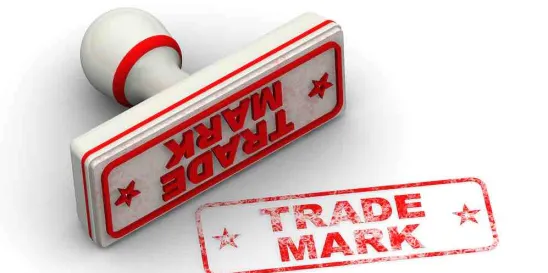The Federal Circuit just “re-issued” its precedential decision in Great Concepts, LLC v. Chutter, Inc. (No. 2022-1212), where it had previously reversed the USPTO’s cancellation of a registered trademark. There was no substantive change in this modified version of the prior opinion where the majority held that the Trademark Trial and Appeal Board lacked the power to cancel a trademark registration based on fraud in a declaration of incontestability. However, the reappearance of this decision, the operative facts, and potential action taken by the TTAB on remand invites a bit more discussion.
A Somewhat Quick Recap of the Backstory and Appeal
A more detailed version of the back story and discussion of the appeal can be found in our last post. In short, Great Concepts beat Dan Tana (by a few years) to the trademark office to register its DANTANNA’S mark (Registration No. 2929764) for restaurant services. As a result, the USPTO refused registration of DAN TANA for restaurant services and Dan Tana filed a cancellation petition of DANTANNA’S based on its common law DAN TANA mark, which for the reasons explained in our previous post, was dismissed with prejudice.
About five years later, Dan Tana’s successor, Chutter, Inc., picked the fight back up and filed a new petition to cancel the DANTANNA’S registration, alleging that Great Concepts’ 2010 Section 15 declaration constituted fraud warranting cancellation of its registration under Section 14 of the Lanham Act. Briefly, the fraud angle related to the portion of the Section 15 affidavit explicitly stating that no proceedings involving the DANTANNA’S mark were pending, which was inaccurate based on Civil Action No. 1:08-CV-975-TWT. When the TTAB agreed with Chutter and issued a cancellation order, Great Concepts appealed to the Federal Circuit.
The Federal Circuit reversed and remanded to the TTAB because the alleged fraudulent statement was not made while obtaining the registration, but rather when attempting to establish incontestability, and the TTAB lacked the power to cancel the registration. In this vein, the majority did not reach the issue of whether Great Concepts’ former attorney acted fraudulently.
A Little More on the Next Phase at the TTAB
The TTAB just received the Federal Circuit’s judgment, so there is nothing final to report yet. However, it is clear that, while the registration cannot be cancelled by the TTAB (at least for fraud), the TTAB now must determine the impact of the fraudulent Section 15 declaration on the incontestability status of Great Concepts’ mark. Reading the tea leaves (and going off of the majority’s “encouraging” comments set forth below), it is likely that Great Concepts will no longer enjoy incontestable status:
we further agree that some significant sanction is ‘necessary to deter the further development of such a cavalier attitude toward statements in affidavits under section 15.’
. . .
We do not, however, think our opinion means that committing fraud in connection with obtaining incontestability becomes a costless offense.
. . .
Loss of incontestable status is not nothing…
As a reminder, when a trademark has incontestable status, the registration itself is conclusive evidence of the validity of the mark, the ownership of the mark, and the owner’s exclusive right to use the registered mark in commerce. Put another way, incontestable status means something. In fact, if a third party is sued for trademark infringement of an incontestable mark, it is limited in its defenses since it cannot challenge the mark on the grounds that it is merely descriptive or that the infringing brand is more recognizable.
In addition, the TTAB has a fresh opportunity to consider whether other sanctions should be imposed on Great Concepts (or its former attorney). In this aspect, the majority appears to be advocating for some further action by the TTAB on remand:
More importantly, nothing in this opinion should be read to mean that the Board is powerless to address fraud, including fraud committed solely in conjunction with the filing of a Section 15 declaration… [including that] the Board may sanction any attorney who commits fraud before it.
While not directly on point, the PTO’s Office of Enrollment and Discipline has, in the past, brought the hammer down on attorneys for not adequately understanding the USPTO trademark signature requirements and failing to take reasonable steps to ensure filings were signed in accordance with USPTO trademark signature rules. In one such case, this type of violation of USPTO Rules of Professional Conduct, resulted in the following sanction:
- Public reprimand;
- Probationary period of 12 months; and
- Potential 12-month suspension if any provision of the Agreement, Final Order, or the USPTO Rules of Professional Conduct is violated during the probationary period.
Under the facts of this case, Great Concepts’ former attorney could receive disciplinary action at least on par with — if not worse than – that sanction, considering the lingering bad taste that the TTAB might have right now. We’ll keep you posted on the TTAB’s next steps.
In the meantime, it is worthwhile to reiterate that affidavits should be undertaken only after appropriate investigation and due diligence and with a clear appreciation that the statements made have serious consequences both from a potential loss of rights for the mark holder and sanctions and penalties for the declarant. Indeed, since the majority’s decision did not disturb the TTAB’s holding that “reckless disregard satisfies the requisite intent for fraud on the USPTO in trademark matters,” we may see more fraud claims in the future based on reckless disregard for the truth of the statements being made.





 />i
/>i
